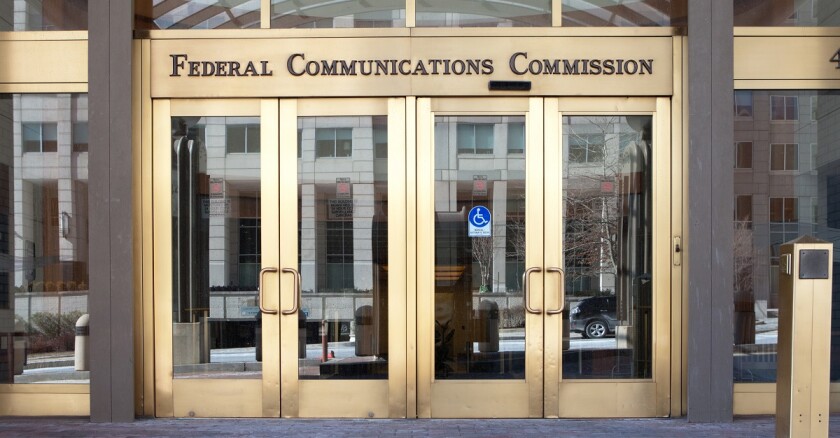Without Starks, the FCC shrinks to three members with a 2-1 Republican majority. Republican member Brendan Carr was named FCC chair in January, and Republican Olivia Trusty awaits Senate confirmation to fill his empty seat. It is now up to President Donald Trump to nominate a Democrat to replace Starks.
The news comes amid a turbulent time for the nation’s E-rate program, which is overseen by the FCC and provides billions of dollars each year for high-speed Internet access at schools and libraries. The FCC is also responsible for the $200 million Schools and Libraries Cybersecurity Pilot Program that launched last year.
Both Republican members of the FCC — Chairman Carr and Commissioner Nathan Simington — voted against the use of E-rate funds for purposes other than on-campus connectivity, such as Wi-Fi on school buses and mobile Wi-Fi hot spots. They also opposed the cybersecurity pilot program.
The two have stated that the FCC has not been granted authority by Congress to fund such programs via E-rate. In his statement against Wi-Fi on school buses, for example, Simington wrote, “The Telecommunications Act could not state more clearly that E-rate may only be used to subsidize Internet connectivity for elementary schools, secondary schools and libraries.”
Now that they hold a majority at the FCC, Carr and Simington could go back and reverse course on these or other decisions that were made when Democrats outnumbered them under former FCC Chair Jessica Rosenworcel.
A MORE PRESSING CONCERN
Keith Krueger, CEO of the nonprofit Consortium for School Networking, said he believes the more pressing concern is a Senate joint resolution that could permanently end E-rate funding for mobile hot spots.
“At this time, we are urging our members to focus on Congress,” Krueger wrote in an email to Government Technology. “Although we know that Chairman Carr and Commissioner Simington opposed adding mobile Wi-Fi hot spots and bus Wi-Fi to the E-rate eligible services list, we do not yet know how they plan to proceed.”
Meanwhile, the resolution to remove E-rate funding for mobile hot spots passed the Senate on May 8 and now awaits a vote in the House. If it passes as expected, it would then go to the president’s desk for a final signature.
“It is important for school leaders to contact their House member in June to express opposition to the Senate joint resolution,” Krueger wrote in the email.
He added that he does not expect the FCC to take any action on E-rate or other programs that stem from the Universal Service Fund (USF), such as the cybersecurity pilot, until the Supreme Court rules on a case that questions the constitutionality of the nearly 30-year-old fund.
Joseph Wender, executive director of the nonprofit Schools, Health and Libraries Broadband Coalition, said he does not foresee major changes to the E-rate program itself despite the shift to a Republican majority at the FCC.
“E-rate has enjoyed broad bipartisan support from both rural and urban communities for decades, and we expect that support to continue regardless of the commission’s makeup,” Wender wrote in an email to Government Technology.
PROJECT 2025 ON THE FCC
As far as what the future may hold under a conservative FCC, part of Project 2025 was penned by Carr and could offer a few clues to his intentions. Though he does not reference E-rate specifically in his chapter on the FCC, Carr does address the USF and the administration of broadband infrastructure funds.
For example, Carr states that the new administration should “eliminate government-funded overbuilding of existing networks” and instead direct broadband infrastructure funds “to communities without adequate Internet infrastructure.”
In terms of the USF, which is currently funded via telecommunications fees that can be passed on to consumers, Carr states that tech companies should be required to contribute to the fund, given that it supplies billions of dollars for affordable Internet and rural connectivity programs.
“While Big Tech derives tremendous value from the federal government’s universal service investments — using those federally supported networks to deliver their product and realize significant profits — these large corporations have avoided paying a fair share into the program,” Carr wrote in Project 2025. “By requiring traditional telephone customers to support broadband networks, the FCC’s current approach is the regulatory equivalent of taxing horseshoes to pay for highways.”
















